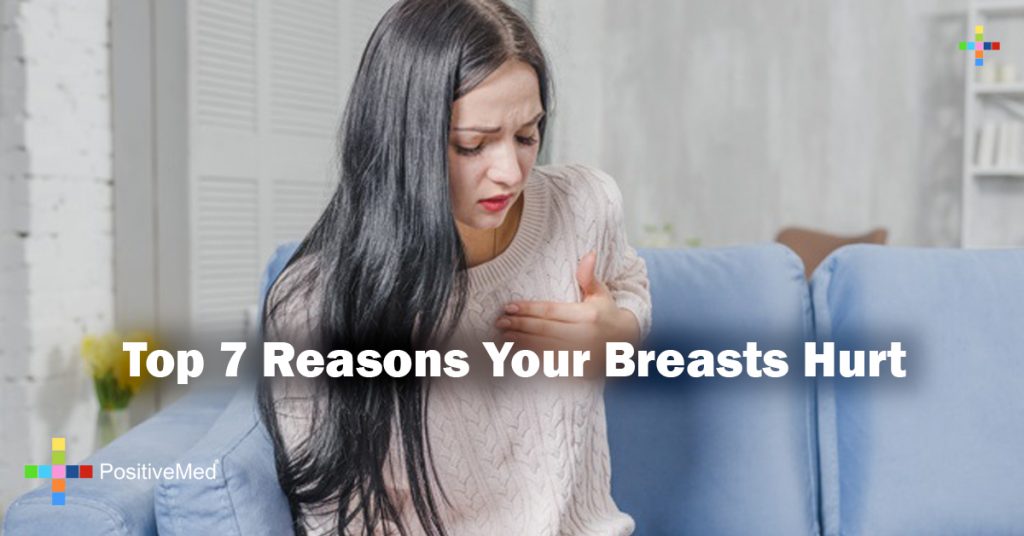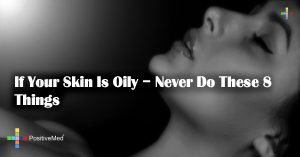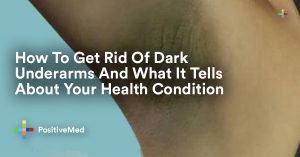
Breast pain, medically known as mastalgia, is a common problem for those born female causing sore, tender, or lumpy breasts. It’s painful and scary, breast cancer is a real and frightening thing, but you should know breast cancer is rarely the cause of breast tenderness.
There are two types of breast pain, cyclic and noncyclic. Cyclic is the most common caused by normal monthly changes in your hormones. This pain usually occurs in both breasts and can radiate to the armpits and arms. It’s almost painful just before menstruation and ends with it, it occurs more in younger women.
Noncyclic breast pain is common in women 30-50 years old. It usually occurs in one breast in one particular area. The pain can be sharp and burning and can be caused by a fibroadenoma or a cyst.

Here are the causes behind painful breasts:
• Hormonal changes related to menstruation
The menstrual cycle is directly linked to changes in reproductive hormones. Different times in your cycle can cause your breasts to be painful, sore, and tender. The fluctuation in hormones leading to a lack of estrogen leads to breast pain. Stress can affect your hormones, and the hormonal fluctuations caused by stress can lead to breast pain.
• Lumpy breasts
Lumpy breasts can be painful, don’t panic if you notice a lump in your breasts, it can be normal and rarely means cancer. Lumpy breasts are a result of hormonal imbalance, per the National Breast Cancer Foundation lumpy and uneven breast tissue is usually caused by fluid-filled cysts, not cancer, you can always get them checked by a doctor.
• Breast Structure
Factors that affect breast structure include cysts, breast trauma, prior breast surgery, and others are the causes of noncyclic breast pain. The pain usually occurs in the chest wall and muscles leading to the breast. Those with larger breasts may also suffer pain in their neck, back, and shoulders.
• The wrong bra
You should always choose the right bra to support your breasts. Pamper your breasts, they are sensitive. If the bra is too tight or the cup size is too small it can lead to breast pain which usually goes away after you switch to a properly fitted bra. Know the correct size then shop for lingerie.
• Medications
Birth control pills and hormone replacement pills like infertility medications or menopausal aids are likely to cause breast pain. They contain estrogen and progesterone which disrupts the functioning of hormones leading to breast pain. Antidepressants can also cause breast soreness and pain.
• Fatty acid imbalance
Imbalances of fatty acids within cells is likely to affect breast tissue and circulation of hormones. You can use primrose oil, a good source of fatty acids, it helps reduce breast tissue sensitivity to hormones by compensating the loss of fatty acids.
• Workout
If you have been doing push-ups or lifting weights it can cause tender breasts. This pain comes from lack of support to the muscles underneath your breasts during strenuous exercise. A recent study stated that one in every three marathon runners report breast pain. Get a good support bra for yourself and be careful with heavy lifting.
What you can do:
• Take magnesium supplements in the latter half of your menstrual cycle, which is usually 2 weeks before your period. This will help relieve cyclic breast pain and other PMS symptoms. You should also eat magnesium-rich foods.
• Reduce your intake of dietary fat to 15% or less to reduce breast tenderness. This is backed by a study which shows that long-term changes in your diet will eventually lead to a reduction of breast pain.
• Reduce caffeine consumption, some women report they felt less pain after cutting down on caffeine.
• If it gets more severe and does not go away after 3 weeks call your doctor.





